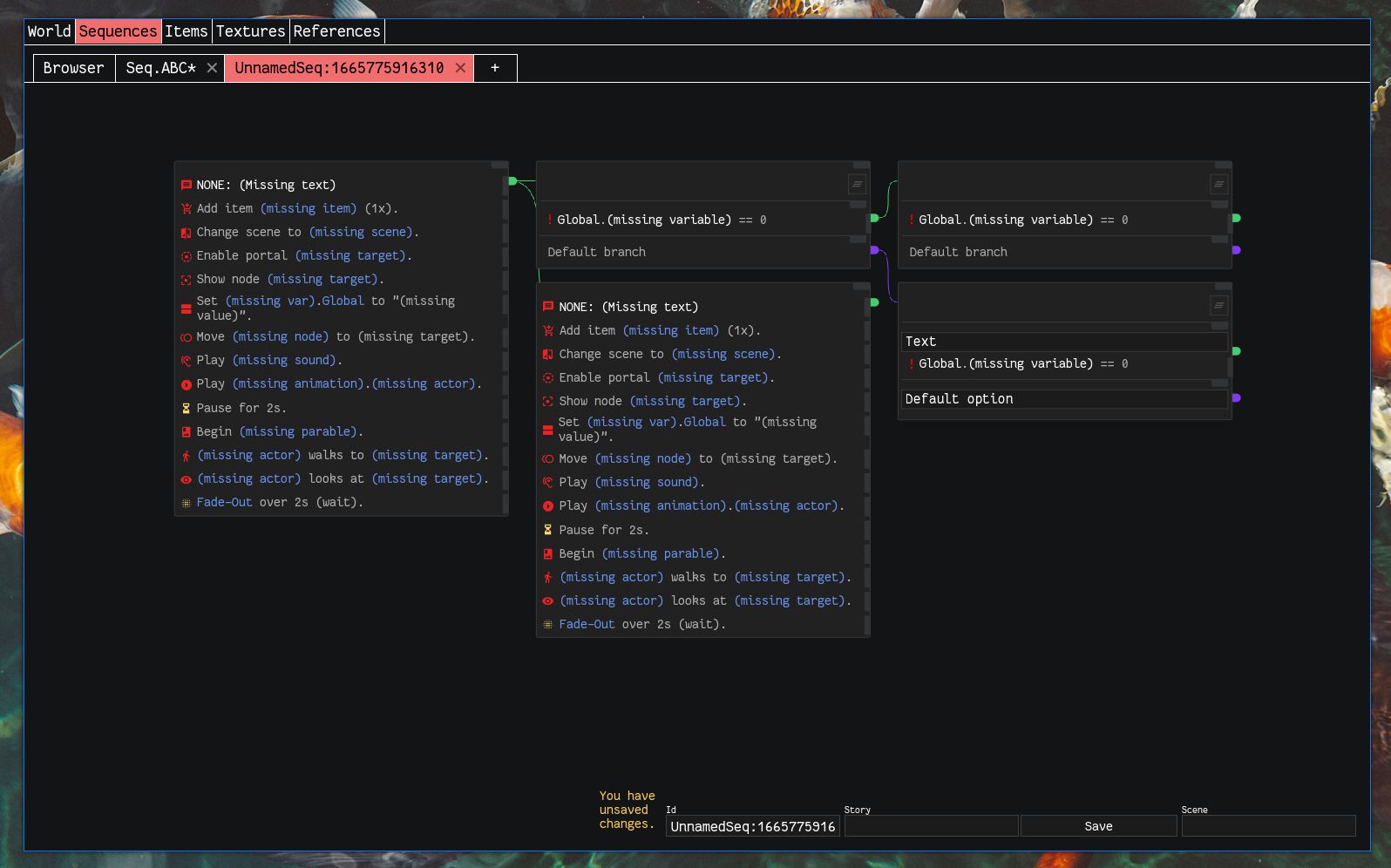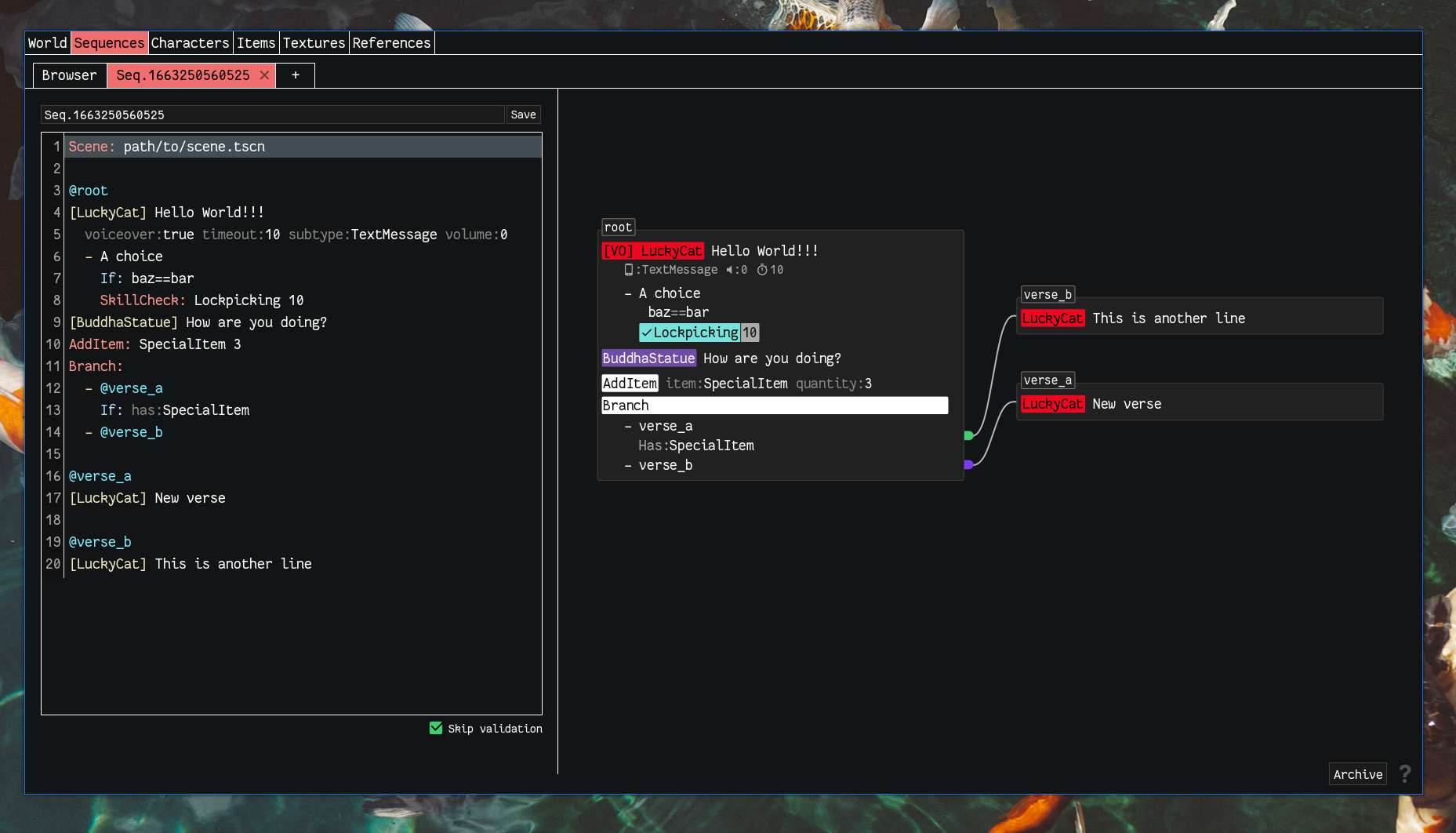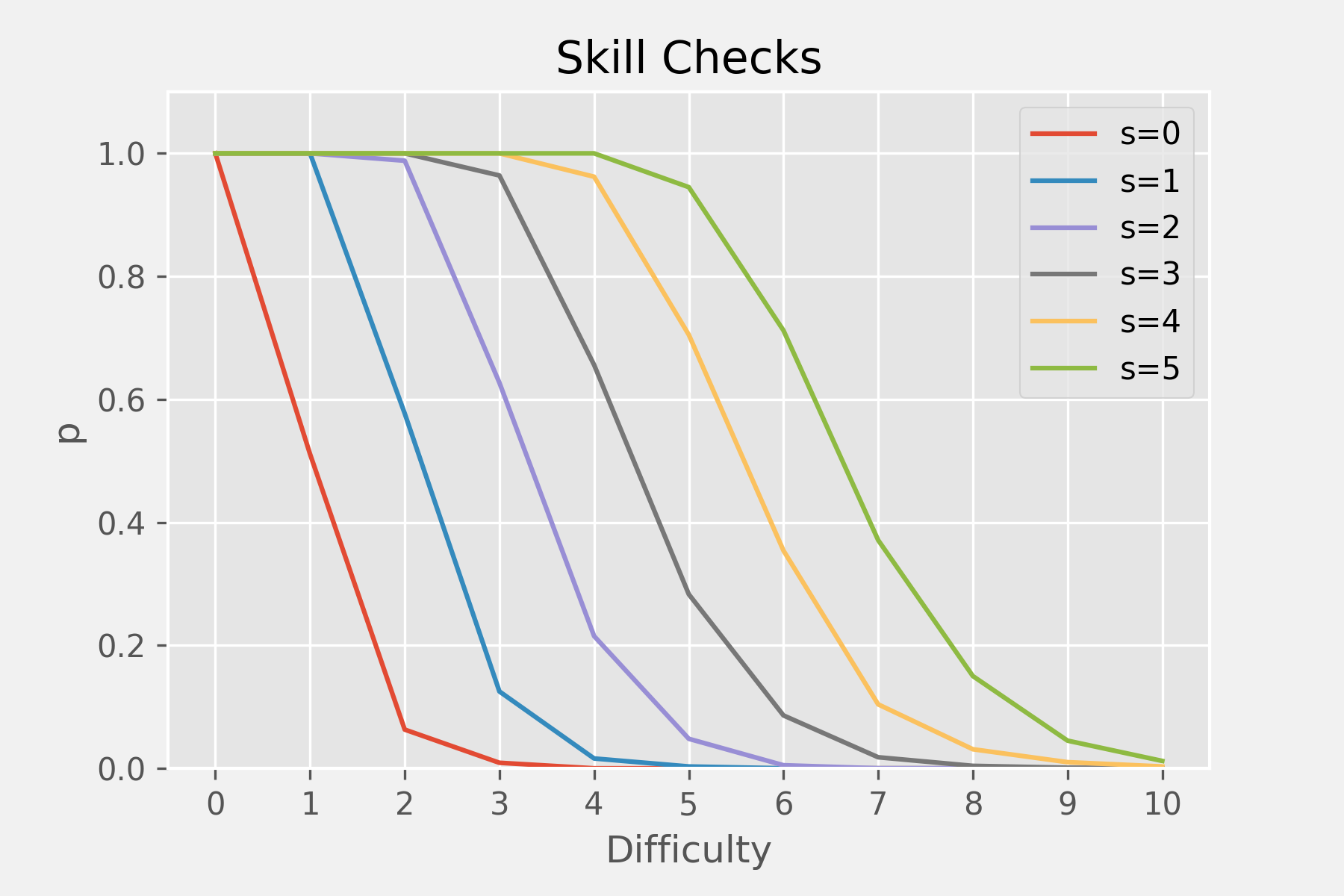Fugue Devlog 22: Migrating to Godot 4, Tooling Changes, and the Skill Check System
Gliss, and Migrating to Godot 4
Godot 4 was recently released and brings with it many improvements to GDScript (thankfully addressing most of my pain points with the language), better performance, and several other changes that I can’t yet appreciate. Because the game code is still pretty basic I figured it’d be worthwhile to just migrate to Godot 4 now. It ended up being a good opportunity to refactor some things now that I have a clearer idea of what systems need to be included.
Semi-related to this refactor: I’ve decided to first work on a smaller demo/prototype called Gliss (for glissando) to test out mechanic ideas and the overall development process. The hope is to flesh out all the game designs and systems and then Fugue will just a bigger version with few, if any, new systems & mechanics. My ideal outcome is that Gliss establishes the framework, and the expanding it into Fugue is mostly a matter of authoring more content–characters, locations, etc.
Overhauling the Sequence Editor (verses)
As I was starting to write out more sequence scripts I found the existing editor (below) to be clunky. And when I need to define new script actions (such as skill checks, more on that below), it requires a lot of lift to define the new frontend components and inputs. Just super unwieldy.
I revisited an idea which was to define a special plain-text format for sequence scripts. I never pursued it because I was daunted by the prospect of writing my own custom parser…but I had to do that anyway to parse Godot’s .tscn files, so what’s one more parser?
The process of writing the parser with nom actually wasn’t too bad. The trickiest/most frustrating bits were dealing with error handling (just haven’t fully grokked error handling in Rust in general) and handling recursive parsing (couldn’t figure out a good approach for that and ended up just putting a fixed limit on recursion depth). But otherwise once you get a handle on the combinators (especially with their indispensable guide) the whole effort becomes intuitive.
I also implemented script validation which checks for common issues like requesting nodes or entities that don’t exist in a given scene, or referencing files that don’t exist, or bad sequence script structure (orphaned nodes, invalid branching, etc), and even typos. The goal is to have some assurance that there will be minimal runtime sequence errors.
The end result is verses, a custom Rust crate/program for parsing and validating gliss/fugue sequence script files. This program can be used to parse scripts to JSON (to import them into Godot as custom resources), and the previous hundun sequence editor (pictured above) is now a relatively thin UI on top of it:
Now the script is just written in the editor on the left and the parsed sequence graph is displayed on the right. Validation happens live. Now the process of writing sequence scripts is less stop-and-go, more fluid than before. It also means that if I need to quickly edit a script file I can do it easily with a text editor.
The text editor itself is made with CodeMirror, which is an intimidatingly powerful editor library. Here I’ve set it up to have custom syntax highlighting and custom autocomplete, which lets me autocomplete, for example, actor names.
The Skill Check System
I began working out the skill check system–the raw skill check mechanic itself is very straightforward, just compare the skill level and difficulty and roll to see if you succeed. I designed the actual rolling algorithm to be visualizable, so you’re not just seeing your odds and then the result. Instead, a rough summary is that the skill difficulty sets a number of successful flips you have to achieve, and your skill level determines how many tries you have. So for a skill level of 3 you get 3 tries. Each try lasts until it fails, so it is possible to succeed at a challenge of difficulty 4, even with just a skill level of 3. The probability of a successful flip is tuned to produce the following overall skill check success probabilities (i.e. each flip is not 50/50):
This chart is kind of confusing, but each line represents a different skill level. For example, say the skill is “Lockpicking”. Say your skill level at that is 3 (s=3). You have about a 100% chance of succeeding at any skill check with a difficulty less than 3. You have a very good chance for difficulty of 3 and about a 60% chance for a difficulty of 4.
I’m hoping that the modifiers will be where this system gets more interesting. The modifiers themselves are just straightforward increases/decreases to skill levels, but I want them to be organized in a way that 1) requires interesting character build decisions (through skill progression) and 2) reflects a character’s beliefs about and experiences in the world (that is, characters don’t just mindlessly/mechanically get better at lockpicking; rather, as they get better it changes how they see the world; and how they see the world affects their proficiencies in certain skills).
I need to think more on 1), but the general idea is that each skill has one or two underlying “proficiencies” that are shared with other skills. For example the two proficiencies for “Lockpicking” might be “Hand-Eye Coordination” (which also underlies the “Medical” skill) and “Puzzle-Breaking” (which also underlies the “Digital Evasion” skill). At the 3rd and 5th skill levels you can pick which of the two proficiencies to take a bonus in (a more expansive build), or you can pick a perk (e.g. you get one free lockpicking attempt without using a lockpick, for a more specialized build). This isn’t all that different from typical skill systems.
Whereas 1) are intentional decisions the player makes, 2) reflects playstyle patterns, and so is more indirect. If a character frequently uses intimidation actions, or frequently witnesses them, they may pick up an “insight” of “Violence is the Answer”, which gives bonuses to violence-related skill checks and penalizes non-violent ones. If they are constantly lockpicking and hacking, they may pick up the “Security is a Fiction” insight, which buffs these skills, but the anxiety of this realization means they stress more easily (which connects to the Energy mechanic, which I’m still working out).
Refactoring chargen into clay
What I’m working on now is refactoring the character generation system (formerly chargen) into a separate crate called clay. This is to also streamline some things as with verses, e.g. make it easier to quickly edit characters and bulk generate large amounts of them. hundun will again be mostly just the UI on top and not handle the actual character generation logic.
Next steps
- Finish porting
clay - Figure out the character export/import into Godot workflow (running into some root motion issues here)
- Re-implement sequence script importing using
verses - Implement skill check mechanic for testing
- Continue developing the core mechanics (e.g. the Energy mechanic)
- Probably some other stuff I’m not remembering


